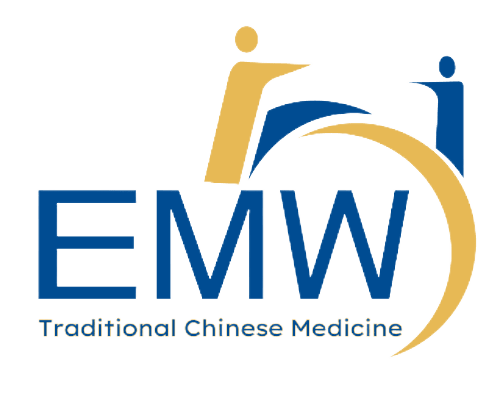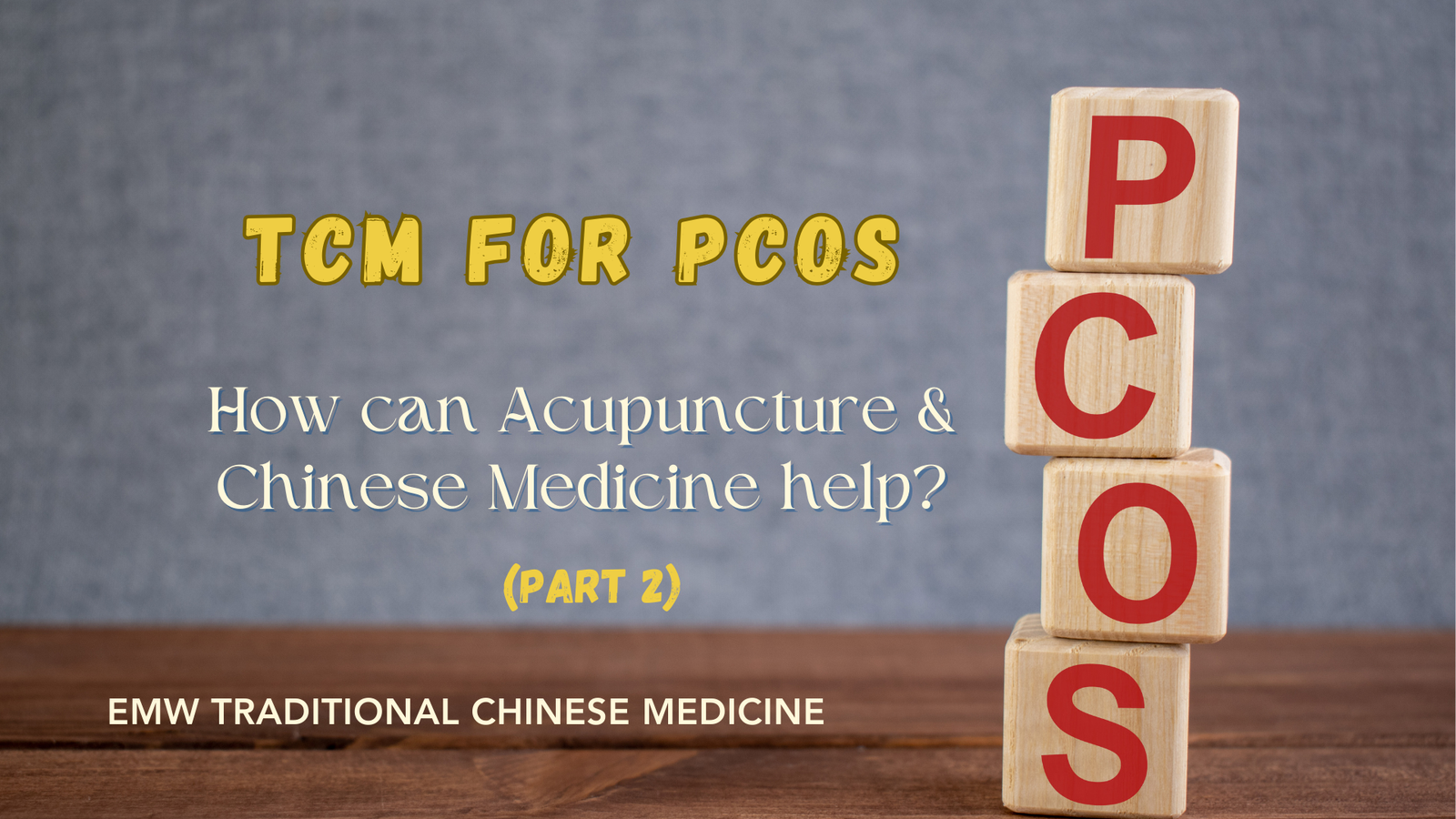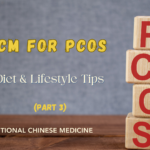How can TCM help with PCOS?
TCM and acupuncture have been shown to be effective in treating pcos. For both Western and Chinese medicine, lifestyle interventions are considered to be the first step in managing PCOS patients. It entails dietary adjustments, physical activity modifications and behavioural interventions to reduce weight. In addition, TCM uses Chinese herbal medicines (CHMs), acupuncture and moxibustion to treat hormonal abnormalities and metabolic complications by addressing the underlying imbalance of PCOS patients, as well as by correcting the body’s constitution, patterns of disharmony and related symptoms altogether. CHMs and acupuncture/moxibustion have a long history of use for PCOS and other gynaecological diseases. Related research and clinical studies have increased tremendously in the past 20 years, and the efficacy has been proven with fewer side effects.
CHMs and Acupuncture/Moxibustion for PCOS — Hormonal Abnormalities and Infertility
For women with PCOS who are trying to conceive naturally or considering IVF, you may benefit from TCM treatments over a period of 3 to 6 months in improving your ovulation and menstrual cycle regularities, ovarian function and egg quality.
Clinical studies have shown that:
- Acupuncture lowers elevated levels of T and LH, resulting in a higher ovulation frequency in lean/overweight women with PCOS.[1]
- Combined treatment of CHMs and electroacupuncture (EA) significantly improves the menstrual cycle, reduces body weight and levels of LH, LH/follicles stimulating hormone (FSH), total T, anti-müllerian hormone (AMH), and improves ovulation and pregnancy rates, all while causing no adverse effects. [2]
- Combined treatment of acupuncture and moxibustion with basic treatments effectively increases pregnancy and ovulation rates, reduces miscarriage rates, and improves the levels of sex hormones and metabolic indicators among patients with PCOS, with good safety.[3]
For those women undergoing IVF, it is common to have an abundance of eggs but of a lower quality, and a higher risk of developing ovarian hyperstimulation syndrome (OHSS). TCM treatments given during the stimulation phase may also help to improve the ovarian and follicular environment by maintaining stable levels of sexual hormones while reducing the risk of OHSS.
TCM treatments during the embryo transfer cycle focus on enhancing blood flow to the uterus, uterine lining quality and receptivity, as well as lowering stress hormones that may interfere with implantation.
Clinical studies have shown that:
- EA improves clinical pregnancy rate with the overall adjustment of the local micro-environment of the ovary and the improvement of oocyte quality.[4]
- Combined treatment of EA and moxibustion with western medication effectively improves endometrial receptivity, increases clinical pregnancy rate and reduces the early abortion rate in patients with PCOS.[5]
Kidney, Spleen, Liver
According to the modern TCM theory, it is hypothesised that the main mechanism of PCOS is the dysfunction of three major organs — the Kidney, Liver and Spleen. Moreover, due to the late or absence of periods as main complaints, TCM recognises and differentiates PCOS to be the consequence of several patterns of disharmony, including Kidney Yang deficiency, phlegm-damp accumulation, and Qi and blood stagnation. Women may fall into one of the following patterns or exhibit symptoms from a combination.
Kidney Yang Deficiency
The Kidney in TCM is the organ system that governs one’s growth and development as well as reproduction. It is often regarded with a hereditary or genetic disorder. Kidney Yang deficiency is considered the root cause of PCOS where patients usually present with metabolic complications and fertility issues. Chronic diseases, excessive sexual and physical activities, excessive intake of cold and raw foods and drinks, and overexposure to cold and wet climates and environments are some common causes of Kidney Yang deficiency. PCOS patients with this pattern often have symptoms such as thin menstrual blood, infertility, lower backache, cold intolerance, fatigue, depression and decreased libido.
Phlegm-Damp Accumulation
The Spleen is in charge of the transformation and transportation of body fluids, while Kidney Yang helps to keep the Spleen warm to ensure its proper function. Therefore, Yang deficiency in the Kidney can cause dysfunction in the Spleen, impacting the body’s ability to transform and transport fluids, leading to the formation and accumulation of phlegm-damp. This can be aggravated by prolonged exposure to a cold and damp environment, diets rich in sugars, fats, ice drinks, junk food and cold raw foods, emotional stress, chronic diseases and mental exertion in PCOS patients. Women with symptoms like scanty and thick menstrual blood, excessive vaginal discharge, dizziness, chest tightness, overweight, acne and excessive hair growth, are usually classified as having phlegm-damp accumulation patterns.
Qi and Blood Stagnation
The Liver is responsible for overall Qi circulation of the body and it also stores the blood. Prolonged or intense emotional stress, including worry, stress, depression and restlessness, impairs the Liver and disturbs the Qi and blood circulation, leading to Qi and blood stagnation. This results in impeded menstrual flow, clots in the menstrual blood, painful periods, sore breast before periods, PMS, mood swings and bloating or abdominal masses.
CHMs and Acupuncture/Moxibustion for PCOS — Metabolic Complications and Obesity
PCOS patients are more likely to develop metabolic disorders such as insulin resistance, dyslipidemia (unhealthy levels of fats in the blood), impaired glucose tolerance, and insulin-induced metabolic syndrome, which predisposes them to type 2 diabetes and cardiovascular disease. Through the use of CHMs and acupuncture/moxibustion treatment, TCM targets stagnation and imbalances, and replenishes deficiencies in the body, which help to relieve symptoms of metabolic disorder and lower the risk of developing serious health problems in PCOS patients. TCM also helps with weight management. It helps in suppressing appetite, regulating hormone imbalance and rebalancing the natural state of health.
Clinical studies have shown that:
- Acupuncture improves insulin sensitivity and hormone levels, and reduces sympathetic nervous system activity and anxiety in patients with PCOS.[6]
- Acupuncture improves insulin resistance, body mass index (BMI) as well as the waist-to-hip ratio (WHR) in patients with PCOS.[7]
- Acupuncture improves fasting glucose, insulin sensitivity, and high-density lipoprotein cholesterol (HDL-C, “good” cholesterol) by enhancing glucose and lipid metabolism.[8]
References:
[1] Johansson, J., Redman, L., Veldhuis, P. P., Sazonova, A., Labrie, F., Holm, G., Johannsson, G., & Stener-Victorin, E. (2013). Acupuncture for ovulation induction in polycystic ovary syndrome: a randomized controlled trial. American journal of physiology. Endocrinology and metabolism, 304(9), E934–E943. https://doi.org/10.1152/ajpendo.00039.2013
[2] Yin, Y., Zhang, Y., Zhang, H., et al. (2018). Clinical therapeutic effects of acupuncture combined with Chinese herbal medicine on infertility of polycystic ovary syndrome in the patients with ovulation induction with letrozole. Zhongguo zhen jiu = Chinese acupuncture & moxibustion, 38(1), 27–32. https://doi.org/10.13703/j.0255-2930.2018.01.006
[3] Li, P., Peng, J., Ding, Z., et al. (2022). Effects of Acupuncture Combined with Moxibustion on Reproductive and Metabolic Outcomes in Patients with Polycystic Ovary Syndrome: A Systematic Review and Meta-Analysis. Evidence-Based Complementary and Alternative Medicine, 2022. https://doi.org/10.1155/2022/3616036
[4] Cui, W., Li, J., Sun, W., & Wen, J. (2011). Effect of electroacupuncture on oocyte quality and pregnancy for patients with PCOS undergoing in vitro fertilization and embryo transfervitro fertilization and embryo transfer. Zhongguo zhen jiu = Chinese acupuncture & moxibustion, 31(8), 687–691.
[5] LIN, Q., LIU, Y., XU, J., et al. (2022). Effect of electroacupuncture combined with ginger-isolated moxibustion on endometrial receptivity in infertile patients with polycystic ovarian syndrome. World Journal of Acupuncture – Moxibustion, 32(1), 15-20. https://doi.org/10.1016/j.wjam.2021.05.018
[6] Li, J., Ng, E.H.Y., Stener-Victorin, E. et al. (2017). Acupuncture treatment for insulin sensitivity of women with polycystic ovary syndrome and insulin resistance: a study protocol for a randomized controlled trial. Trials 18, 115. https://doi.org/10.1186/s13063-017-1854-2
[7] Zheng, R., Qing, P., Han, M., et al. (2021). The Effect of Acupuncture on Glucose Metabolism and Lipid Profiles in Patients with PCOS: A Systematic Review and Meta-Analysis of Randomized Controlled Trials. Evidence-based complementary and alternative medicine : eCAM, 2021, 5555028. https://doi.org/10.1155/2021/5555028
[8] Dong, H. X., Wang, Q., Wang, Z., et al. (2021). Impact of Low Frequency Electro-acupuncture on Glucose and Lipid Metabolism in Unmarried PCOS Women: A Randomized Controlled Trial. Chinese journal of integrative medicine, 27(10), 737–743. https://doi.org/10.1007/s11655-021-3482-z






